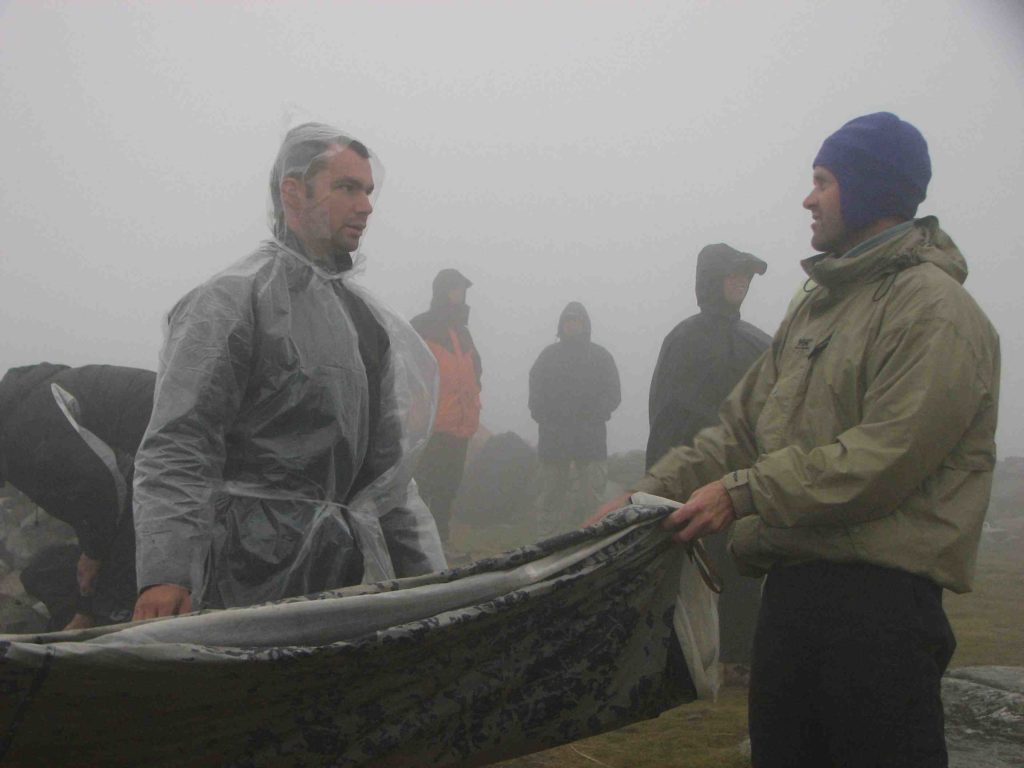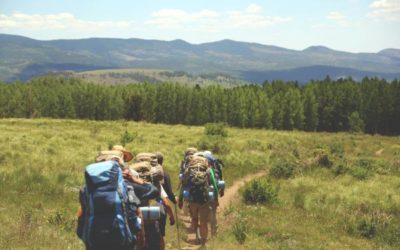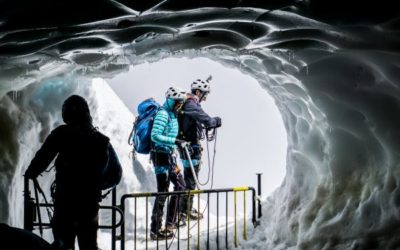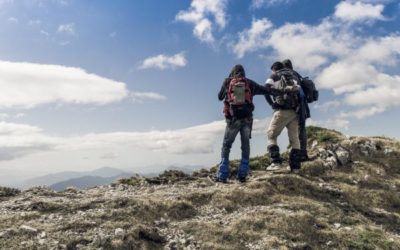This had been one epic trip so far. The group of high school kids were loving life as we had traveled deep into the heart of the Weminuche Wilderness area of southern Colorado. We camped that night high on a ledge in Snowslide Basin and after a great dinner and stories around the stove, we went to bed for a cozy night’s sleep. Yet unbeknownst to us, a crisis was foreboding.
The next morning my guide partner, Barry and I awoke to boil water for hot drinks to get the group motivated to roll out of the tents, and one of the kids, Ricardo, walked out of the tent toward me–half-dazed and holding his neck. It was a bit dark so I couldn’t make out what was wrong but as Ricardo got closer I could see that his neck was swollen to literally the size of a cantaloupe.
We were far into the wilderness, so immediately as the leader I started painting evacuation scenarios in my mind as I had Ricardo sit down to get warm a we assessed what was going on. He had a fever, headache, swollen neck, and a myriad of other symptoms… and we could tell he was going down hill. After checking him out and referring to Medicine for Mountaineering (my favorite wilderness medicine book), we figured that he probably had a really bad onset of mononucleosis (“Mono”), and he needed to be evacuated immediately. After joking with him a bit, asking him to give us a thumbs up or thumbs down if he thought he’d come down with the “Kissing Disease” by kissing anyone, he smiled and reassured us that if it was Mono, it wasn’t from kissing anyone. We made a plan and got him out of the wilderness to medical help which was a relief to he and his family.
From experiences such as these in the wilderness, I have a real passion for training outdoor leaders to be ready for various kinds of crisis’ that will happen in the outdoors. I had a friend ask me recently how train my mind to deal with crisis and stay calm, cool, and collected when the “unexpected” rears its ugly head. Jesus gives us some wisdom here that can make all of the difference in your leadership in times of crisis:
I have said these things to you, that in me you may have peace. In the world you will have tribulation. But take heart; I have overcome the world. (John 16:33)
This topic probably deserves a whole book, but the following three suggestions are “big picture” strategies that I use to stay ready for leading others through crisis points as they arise in the wilderness.
1. LEARN TO RECOGNIZE THE TWO MAIN TYPES OF CRISIS’ THAT ARISE DURING WILDERNESS TRIPS
The way I think about this question is two-fold. First you have crisis related to the terrain and timing of the wilderness which are emotionally laden, and second you have crisis’ related to relationships. And one type of crisis can lead to the other. The terrain can bring about a relational crisis, or relational conflict can lead to panic and chaos when a crisis related to the wilderness terrain or weather presents itself. The great thing about this (and what I love so much about the wilderness) is that the wilderness exposes us… it creates healthy crisis points to that we see who we are, what we are afraid of, who we don’t trust, etc… and it forces us to deal with it. Wilderness is the great leveler.
One trick I’ve learned along the way is to expect the five most common outcomes that happen as a result of wilderness journeys. I call these the ABCDE’s of Christian Outdoor Leadership Outcomes. Having an awareness of these outcomes helps me be more attentive to what God might be doing in a group, and enables me to shepherd people better both in a physical and spiritual sense.
2. BE COMPETENT IN WILDERNESS LEADERSHIP SKILLS SO YOU CAN RESPOND WELL TO OTHERS’ CRISIS’
Wilderness leaders are actually trying to facilitate mild forms of crisis by pushing the group out of their comfort zones so that reality comes out. Once that happens, adventure-based counseling or relational therapy can begin. Yet, as Philip’s questions above point out, you need to be skilled and trained in how to handle these different types of crisis. And you need to be competent at the basic wilderness leadership skills so that you can have the space and margin to respond effectively to others when they are in crisis. For example, if you are not good at navigation or orienteering, when a terrain crisis comes up you will be so focused on trying to figure out your navigation issue that you will completely miss opportunities to help the rest of the group learn from and process the crisis. To consider this point further, I’d suggest starting with my Collection of Outdoor Leadership Skills Tutorials.
3. MAKE YOUR GOAL TO THRIVE, NOT SURVIVE
Wilderness leaders who don’t prepare well won’t be able to attend to the interpersonal conflicts with others because they are so inefficient and preoccupied with compensating for their own lack of wilderness skills. Unprepared wilderness leaders aren’t ministering to people, they are surviving. But wilderness ministry isn’t primarily about survival, rather it is about helping people learn to thrive in difficult terrain (both physical and spiritual). To thrive in a stressful environment you need a well-prepared facilitator or guide. The facilitator needs to be someone who can thrive themselves in the wilderness environment because they are going to need to have the margin to shepherd many other people who are not yet thriving.
Action Steps
- Write down three examples of crisis points you have experienced in the wilderness with a group of people.
- As you think about those situations, what are 3 specific things you could do now to be ready to lead others through a similar crisis on your next wilderness trip? What are some ideas you have to make the most of one of those crisis’ by helping people connect with what God might be showing the group through the crisis?
- Please comment below and share your thoughts!





